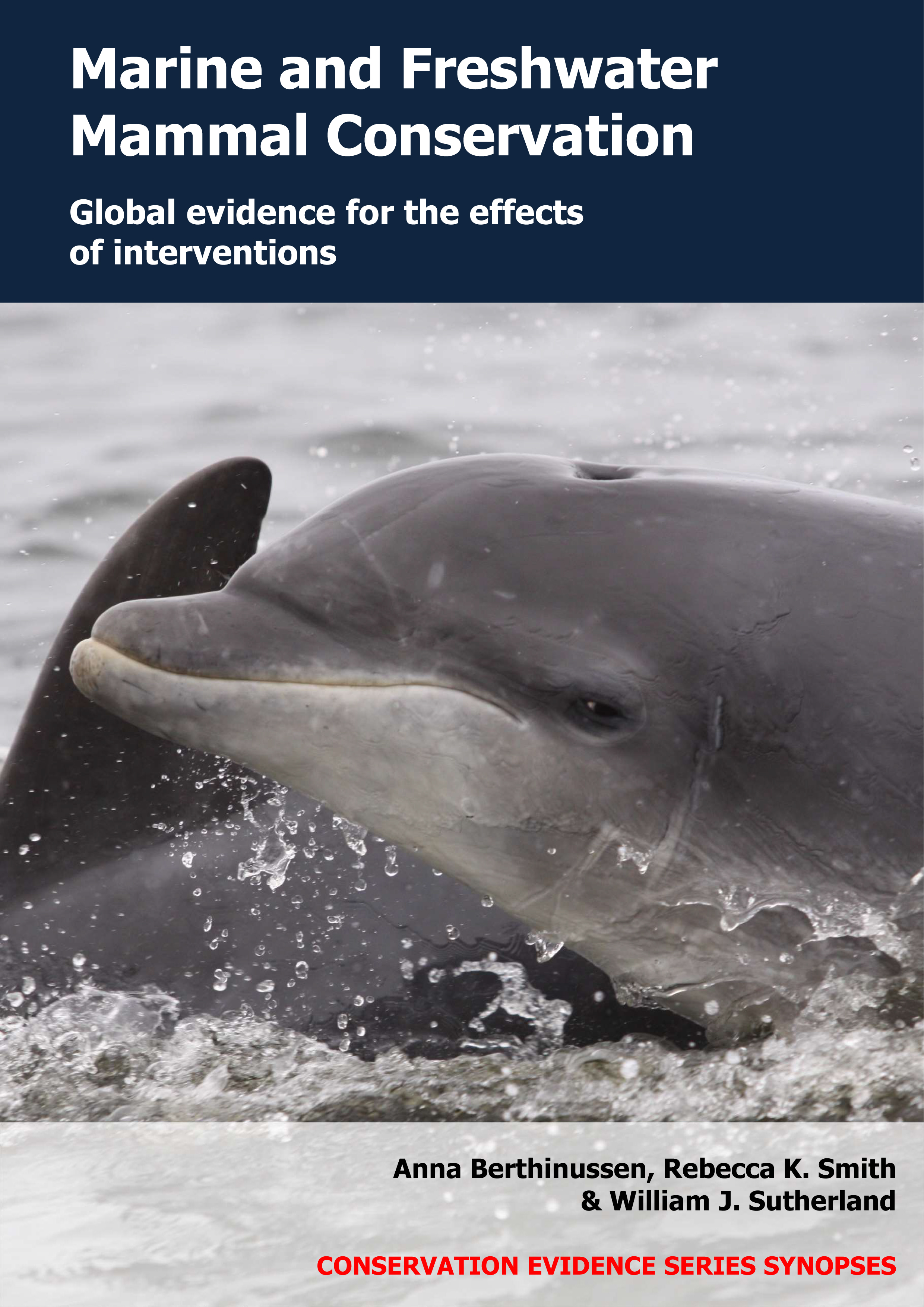Play predator calls to deter mammals from fishing gear
-
Overall effectiveness category Unknown effectiveness (limited evidence)
-
Number of studies: 1
View assessment score
Hide assessment score
How is the evidence assessed?
-
Effectiveness
0% -
Certainty
20% -
Harms
10%
Study locations
Supporting evidence from individual studies
A study in 1974 of pelagic sites in the South Atlantic Ocean, off the coast of southern Africa (Shaughnessy et al. 1981) reported that playing killer whale Orcinus orca vocalizations underwater did not deter Cape fur seals Arctocephalus pusillus from fishing nets. Results are not based on assessments of statistical significance. During two trials with a purse-seine net, all of 15–25 seals feeding in the net responded to killer whale vocalizations by diving. Some seals (48–100%) initially moved out of the net but all returned within 30 seconds. The authors report that floating two life-sized models of killer whale dorsal fins amongst the seals during one of the trials did not affect seal behaviour (no data provided). Results were similar during a trial at a trawl net (data not reported). Recordings of killer whale vocalizations (clicks, whistles, squeaks) were played back through an underwater loudspeaker. Two trials (each with 2–14 minutes of playback) were carried out by a purse-seine fishing vessel with the net pursed to a 10-m diameter. One trial was carried out by a side-trawler vessel with the ‘cod-end’ (containing fish) in the water. Observers on board the fishing vessels recorded seal behaviour during each of the three trials in 1974.
Study and other actions tested
Where has this evidence come from?
List of journals searched by synopsis
All the journals searched for all synopses
This Action forms part of the Action Synopsis:
Marine and Freshwater Mammal Conservation
Marine and Freshwater Mammal Conservation - Published 2021
Marine and Freshwater Mammal Synopsis





)_2023.JPG)














